Foods that have a diuretic effect, natural diuretics, are used across the board in many diet programs. Why are foods that have diuretic effect considered good for your diet? You must be curious what exactly is the diuretic effect、anyway.
Let's see how foods with diuretic effects can play an important role in a healthy diet.
What does the diuretic effect mean in relation to your diet
Your body excretes waste and electrolytes through your urine. In the process your kidneys is tasked with making sure that concentrations work toward helping the body maintain the chemical balance it needs to function properly. Although the amount of urine release from our bodies varies from person to person; however it is a good rule of thumb that this amount is about 1.5 liters per day (a little over a quarter of a gallon). You may have heard the converse that every day you should drink at least 3 or 2 liters of water, depending on whether you are a man or a woman. The same goes for the amount of fluid that your body gets rid of every day.
In addition to helping maintain chemical balance in the body, extra fluids and waste products such as sodium, ammonia, and uric acid are transported out of the body by urine.
What the diuretic effect does is increase the amount of urine excreted by the body that makes it easy to expel unwanted waste products your body. What this means is that it makes your body more efficient at getting rid of waste through your urine.
What can the diuretic effect do for your diet
Through the diuretic effect, excess fluids and waist products can be extracted from the body faster, making you less likely to develop edema, noticeable swelling caused by body tissue fluid accumulation. Edema works against your diet making it easy to get fat. That is why through diuretics you can prevent the development of edema and set your diet up for optimal conditions to yield positive results.
Why should you be worried that edema will hinder your diet?
Accumulation of excess fluids and waste has a negative effect on the flow of blood and lymph in the body, which could hinder your the metabolism and possibly cause you to catch a cold. While in this state, it is harder for you body to burn off fat, which in turn negatively affects your diet results.
In addition to ruining your diet, developing edema can lead to unwanted cellulite. In order to prevent this from happening, the upmost care should be taken into consideration.
How to effectively use the diuretic effect to aid you in your diet
In order to effectively use diuretics to aid you in you in your diet, incorporating foods that have a diuretic effect in your diet is key. At first this may seem like a daunting task, but it is not. Foods with known diuretic effects can be readily bought at your local grocer.
How do you know if a food is a natural diuretic? The answer to that question is that foods with known high potassium content have a natural diuretic effect. Potassium can be used to help the body combat excess sodium (salt), which reduces the chances of developing edema.
Increasing intake of potassium-containing foods teamed with being well hydration can be the secret to your diet's success. Here are some recommendations good sources of potassium to get you started on your way one step closer to positive changes towards making healthier lifestyle choices. Note that foods abundant in Potassium are not exclusive to this list.
High potassium-containing foods:
-
Avocado
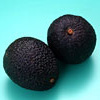
En route to the New World, European sailors used this foot in place of butter. Nowadays, it has found its way into your salads. As a health-food disease-preventative measure, along with containing high levels of oleic acid, an omega-9 fatty acid, supporting the body's ability to burn away fat; it also contains linoleic acid which helps lower your cholesterol. Calories in Avocado
-
Spinach
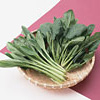
One of American past times, watching how Popeye always was able to triumph over Bluto and get the girl was by eating this health-food. Not only was he able to raise sales during the time, he helped many people get the vitamins and minerals they need. Along with being a good source of potassium, it's high in Iron and Manganese, which helps prevent anemia. It has high vitamin C and E content, which both help to promote healthy beautiful skin. Calories in Spinach
-
Parsley
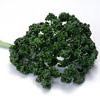
When thinking of preparing any dish, one must never forget to top it off with this herb. Parsley as an excellent source of dietary fiber and Iron also contains high levels of vitamin B1 and B2 that enhances the body's fat burning mechanisms. When compared with other vegetables, it is consider one of the best sources of vitamins and minerals. So the next time you are at the grocery store, don't forget to consider adding this item to your diet as well as your cart. Calories in Parsley
-
Apricots (dried)
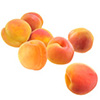
Retaining most of the nutrients of its un-dried counterpart, this fruit serves as and excellent source of dietary fiber, Potassium. It also contains considerably high levels of vitamin A, a fat-soluble compound, which plays an important role in promoting bone health and stimulates the production of white blood cells. It is also well recommended by doctors to be good for your eyes in that it may help reduce the risk of cataracts. Calories in Apricots
-
Banana
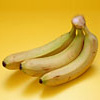
Whether you are looking for a quick lift in energy before exercise or you a low-calorie alternative figuring out what to eat for breakfast, this fruit is for you. The banana is considered to be a good choice in sport, because of the ease that it may be digested As well as serving as an excellent source of Potassium and Manganese contain high levels of vitamins such Niacin, B2 and B6. It is also said that bananas may help reduce blood pressure. Calories in Bananas








